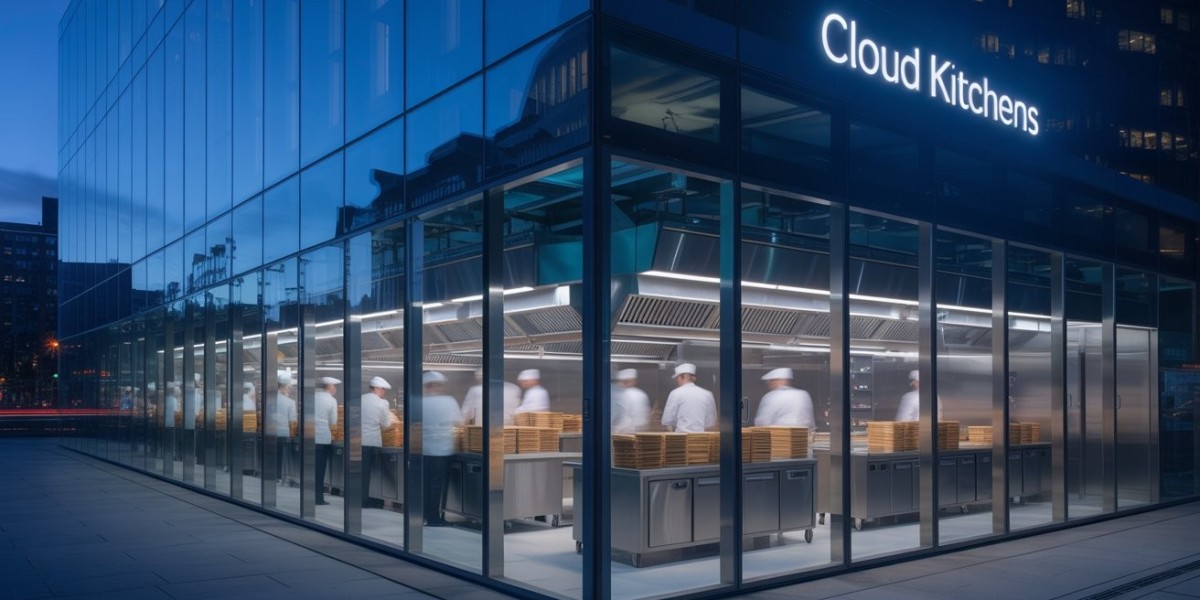Cloud kitchens, sometimes referred to as virtual kitchens or ghost kitchens, are delivery-only facilities designed specifically to prepare food for online orders. Unlike traditional restaurants, these kitchens do not have dine-in spaces. Instead, they rely entirely on food delivery apps to reach customers.
In the UAE, the growth of cloud kitchens aligns with urban lifestyles. With cities like Dubai known for their fast-paced environment, customers increasingly prefer the convenience of home delivery. Local brands such as Kitopi, Talabat Kitchens, and KRUSH Brands have already embraced this model, using technology to streamline food preparation and delivery.
Neighboring markets are also witnessing a similar shift. For example, in Saudi Arabia, the cloud kitchen segment is emerging as a major growth area, as detailed in this Saudi Arabia Cloud Kitchen Market Report, offering useful comparative insights for UAE operators.
Why Cloud Kitchens Are Growing in Popularity
Several market dynamics explain why cloud kitchens are becoming central to the UAE’s catering industry:
- Changing Consumer Preferences: People value quick, hassle-free access to diverse cuisine options, especially in metropolitan areas.
- Post-Pandemic Shifts: After the COVID-19 pandemic, demand for contactless food delivery and personalized packaging surged, making cloud kitchens an attractive option for both businesses and consumers.
- Business Flexibility: Cloud kitchens enable catering businesses to operate with reduced overheads and lower risks compared to full-service restaurants. Brands can experiment with new menus or enter new neighborhoods without committing to expensive storefront leases.
- Technology Integration: The adoption of digital ordering platforms, AI-driven kitchen management systems, and automated delivery logistics supports faster, more efficient operations.
Key Technologies Revolutionizing UAE Catering Services
Cloud kitchens benefit from several food technology advancements, including:
- Real-Time Inventory Management: Smart tools help track stock levels, reducing waste and improving cost-efficiency.
- AI-Powered Personalization: Artificial intelligence analyzes customer preferences and purchasing behavior, helping businesses offer tailored menus and promotions.
- Seamless Delivery Integration: By connecting kitchen operations with food delivery platforms like Talabat, Deliveroo, and Careem, businesses streamline order fulfillment and improve customer experience.
These technological tools enable catering providers to serve more customers without compromising on food quality or service speed.
Challenges to Consider
Despite their growth, cloud kitchens also face challenges that businesses must address:
- Maintaining Consistent Food Quality: With multiple virtual brands under one roof, ensuring consistent taste and quality requires robust kitchen processes.
- High Commission Fees: Delivery platforms can charge significant commissions, which can reduce profit margins if not properly managed.
- Cultural and Regulatory Compliance: In the UAE, it is critical to adhere to halal certification standards and meet health regulations to maintain consumer trust.
Future Outlook: Opportunities for UAE Catering Businesses
Market reports forecast strong growth for the UAE catering services industry, with cloud kitchens projected to capture an increasing market share. The country’s vibrant hospitality sector, large expatriate community, and continuous influx of tourists create opportunities for catering providers to expand their services.
Catering businesses can capitalize on this shift by:
- Offering unique, high-quality virtual dining experiences.
- Using data and technology to adapt menus to changing customer preferences.
- Diversifying their services by catering to corporate clients, social events, and institutional contracts via cloud kitchen operations.
Final Thoughts
The rise of cloud kitchens and food tech marks a pivotal shift in the UAE’s food service industry. Businesses that embrace these models are better positioned to serve the modern customer—someone who values convenience, variety, and digital accessibility.
To succeed in this evolving market, catering providers should focus on operational excellence, technology adoption, and a customer-first approach. By doing so, they will not only meet growing demand but also build long-term brand loyalty in the competitive UAE catering landscape.



